By Abner Manzar
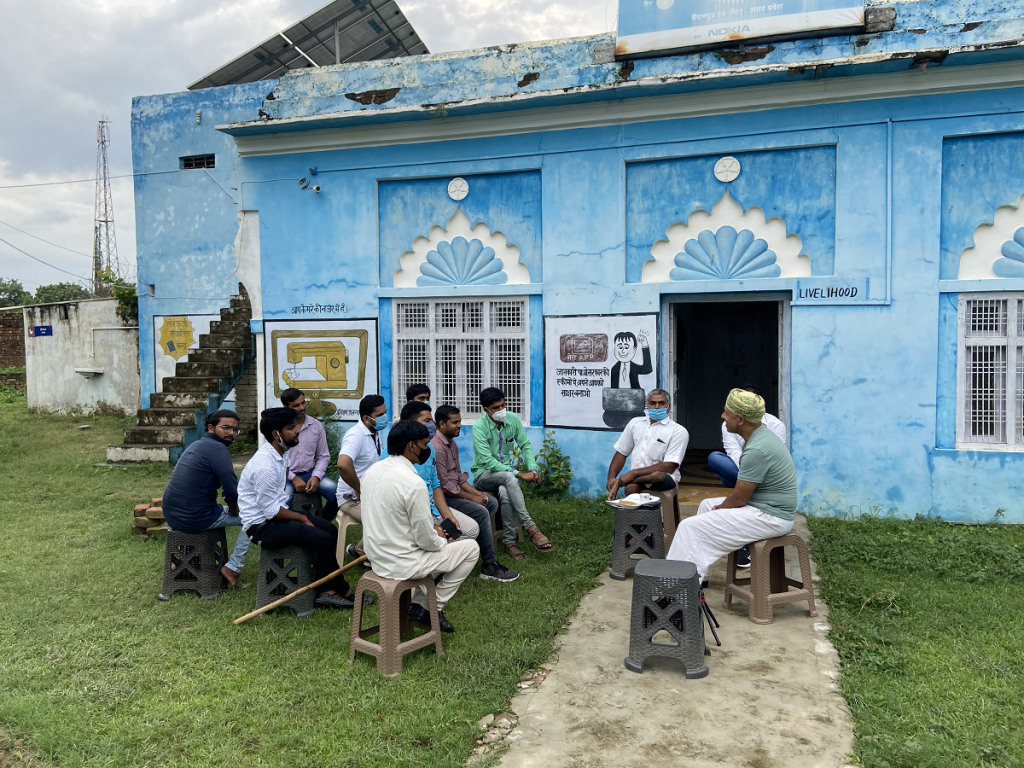
Digital Empowerment Foundation has been working in the district of Barabanki for the last seven years. With one hub center in the village of Saidanpur, DEF has expanded to 60 villages in the district through their entrepreneurs. These entrepreneurs are digital trainers, digital service providers, weavers, teachers and community leaders who have made community development their primary goal.
Smartpad
“My brother thought I was making a children’s diaper” said Shreemati Devi, a digital entrepreneurinvolved in the production of Smartpads. Smartpad is a re-usable sanitary pad. As Shreemati explained the benefits of using it a group of young boys stood around us listening to her. However, as they realized what she was talking about they mumbled to each other and walked away. As I noticed this I asked Shreemati why this happened and she said “they feel shy listening to us speak about periods. This is exactly the reason so many young girls suffer quietly and don’t speak out when they get their first period. Her body goes through serious changes and she is unable to speak to anyone about it, just imagine what she must be going through.”
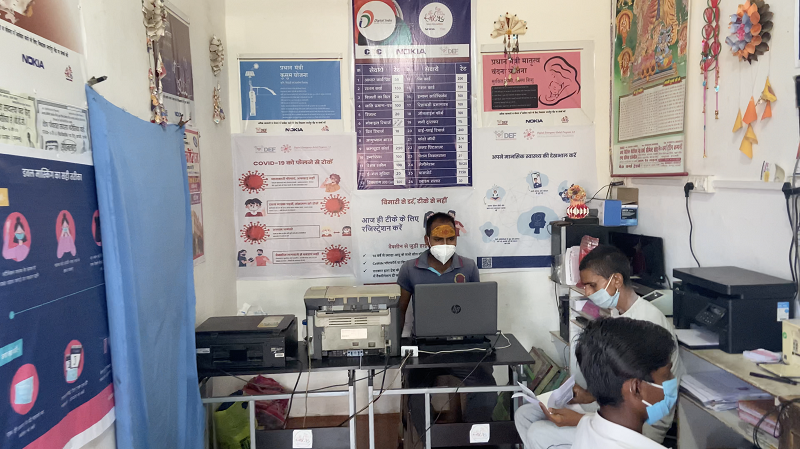
Digital Empowerment Foundation has set up a Smartpad production unit in the district of Barabankibased out of the village of Saidanpur. The unit is nothing like a conventional production unit; spread over 5 villages it provides livelihood to several women. Kiran Gupta, the stitching trainer at DEF’s center in Saidanpur said “apart from the obvious benefit that the pad provides- ensuring that girls use pads, it is also more environment-friendly as villages don’t have a proper waste management system so people just use the pads and throw them here and there. This can lead to a spread of diseases and it is also an environment hazard.” Kiran takes stitching classes for girls in the village and has so far trained 200 girls. She has handpicked seven girls across five villages along with DEF’s district head Utkarsh Rajawat to make pads. Having received a large order from Digikargha (an entity that provides artisans of rural clusters a platform to sell their products. During the pandemic they have bought a large stock of products from across seven clusters in India as the artisans didn’t have any other buyers and without the sale of their products they weren’t able to earn a decent livelihood. In fact, most of the artisans who Digikargha wasn’t able to support left their craft and started looking for other avenues of income like farming and labour work), Utkarsh has put them all to work. During the pandemic lack of work has pushed a large section of the population closer to poverty and the production of these pads have provided these girls with a source of livelihood.
Most women from the older generation in rural parts of the country use dirty cloths during their periods and this unsanitary practice has also come down to the young girls. Some girls who are even aware of the benefits of pads are unable to use them because they can’t afford it. Smartpad provides a sustainable, environment-friendly and cost-effective solution not just for girls in rural areas but also for girls and women living in urban areas.
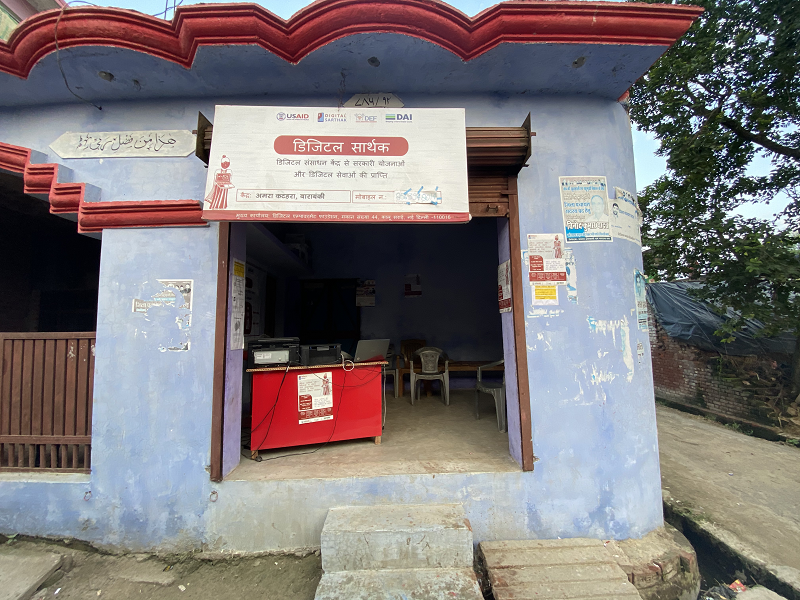
Education
Located about 50 kilometers from Lucknow, Saidanpur is nowhere close to the capital in terms of development and education. The entrance into the village is with the ruins of various havelis that are about 150 to 200 years old. DEF’s digital center is located in one such dilapidated but refurbished ruins of a haveli.
Noori is one of the girls working at the digital center as an IT trainer. When asked about the importance and impact of this digital center she said “during COVID schools have shut down and unfortunately government schools have not shifted online. Moreover many students of private schools that have can’t afford to buy digital devices. At a time like this our work here has not stopped so every day students come here and I take two batches of computer classes apart from that. Students who want to attend online classes but don’t have digital devices come here to attend their classes. Since online education is not perfect they sometimes take help from me and I help them with their assignments.” Noori is right about the exclusion that has come about due to the digital divide. The 2017-18 National Sample Survey reported that only 14.9% rural households had Internet access. DEF’s digital daan campaign is trying to bridge the digital divide through interventions like the one in Saidanpur.

A government school teacher in the neighbouring village gave a deep insight into the directives from the administration. She said “we were told to send the students work through WhatsApp and ask them to complete the work and send pictures but I know all my children (students), almost none of them have a personal mobile phone. Some have parents who have phones but since they also go out to work during the day the children are unable to access phones. I felt so helpless, my children are going without education and most of them come from economically weaker sections so if they don’t get educated they will not have a future. Finally, I asked some of the girls who had phones to share with their classmates and tried to manage that way. But there aren’t enough who have smartphones so we were left with no other option but to school the children at our homes since schools aren’t allowed to officially open.” This being the state of online education in rural India there is a dire need of digital devices that DEF is attempting to provide for children at its 1,000 locations across 25 states in India.
Livelihood
Utkarsh, the district head of DEF says “the work that DEF is doing here is highly beneficial, take Kiran for example, she came to the Saidanpur center three years ago to learn stitching and now she owns two stitching machines, one for her sister and one for herself and she runs a small business herself. Her training and drive to do something in life has made her independent. Here in Barabanki this is what we are trying to achieve- creating a huge network of independent entrepreneurs, especially women so that they are able to break the shackles of patriarchy by earning a decent livelihood and taking decisions independently.” The progress is slow but DEF’s constant motivation and support has helped more than 35 women and 2 families reach a stage where their livelihood is secure. 25 of these women have become SoochnaPreneurs (Digital Information Entrepreneurs) who along with earning a decent livelihood also help people in their village gain access to vital information.
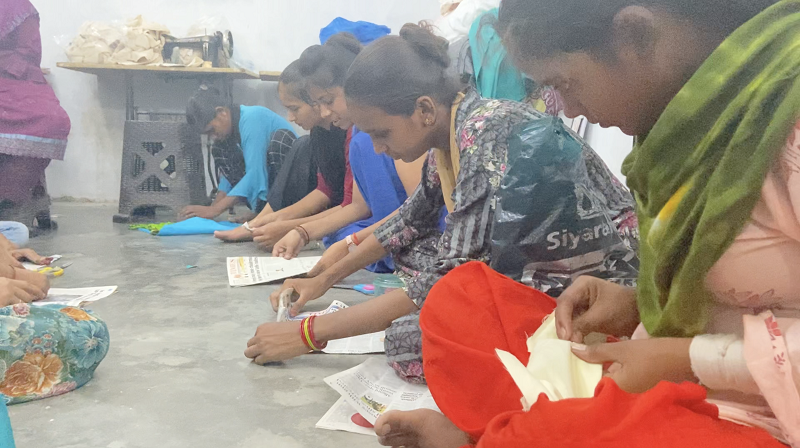
Entrepreneurship
Over the last seven years DEF has created a network of SoochnaPreneurs who serve their villages by providing digital services like access to government entitlements, digital financial services, telehealth services and computer classes. During the pandemic they became more active and spread information related to COVID-19, social distancing, the importance of masks and vaccination. In fact, many of them played a huge role in the vaccination drives that were held in rural parts of Barabanki.
These entrepreneurs have become the only point of access to government schemes, financial services and even education for many people in their respective villages. These SoochnaPreneurs are provided with laptops, a mobile phone and a printer from DEF, and using these devices their job is to serve the community while earning a decent livelihood for themselves.
Speaking with one of them it was evident that their work had become essential in the region. Mamtavati said “our village is in a very remote region; the closest photocopy shop is 3 kilometers away.” She was right, the journey to her village seemed like a road to nowhere. The agricultural fields slowly became denser and as the village came closer it became a forest until a few fields started opening up again as the village started. “People here are so happy since I have started working here. They come to me for not only photocopying but advice for anything. I have become like a village level influencer” she said smiling widely.
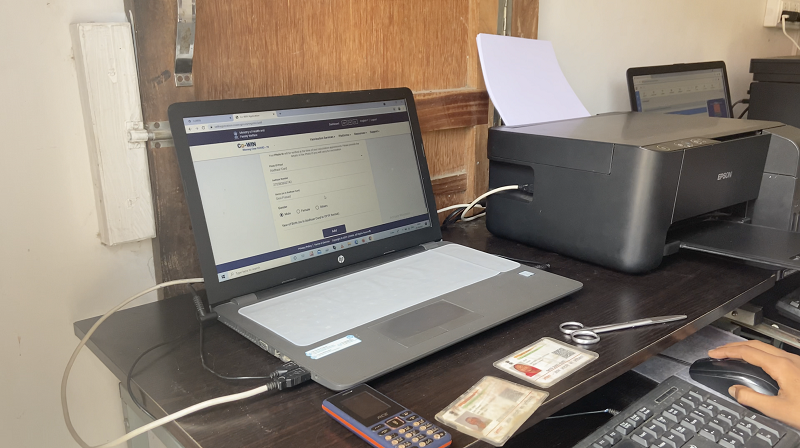
Conclusion
Through a network of 35 women and 25 men, DEF has been able to reach 60 villages in the district of Barabanki. In the cases of digital entrepreneurs DEF provides them digital infrastructure and training to run a successful Community Information Resource Centre (CIRC) and in the cases of tailors and weavers Digikargha, DEF’s partner places orders providing them with a livelihood and selling the products online or in their physical store in Delhi.
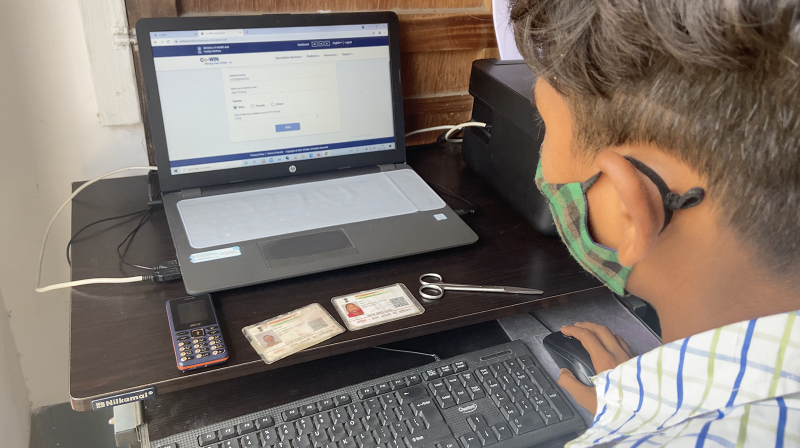
These 60 entrepreneurs supported by DEF have become leaders who are approached for all issues in the village; they help people avail government entitlements, they become mobile banks providing financial services at people’s doorstep, they provide tele-health services so that people don’t have to travel to cities, they become hubs for students who attend online classes but can’t afford a digital device and now because of their dedication towards their communities they have become highly respected members of their communities and people seek their advice for issues they face. Each of them serves at least 1,000 people every month. Through constant support, guidance and mentorship DEF has been using its network to reach thousands of people every month through these entrepreneurs. With 1,000 such entrepreneurs across the country DEF serves 1,000,000 people every month.
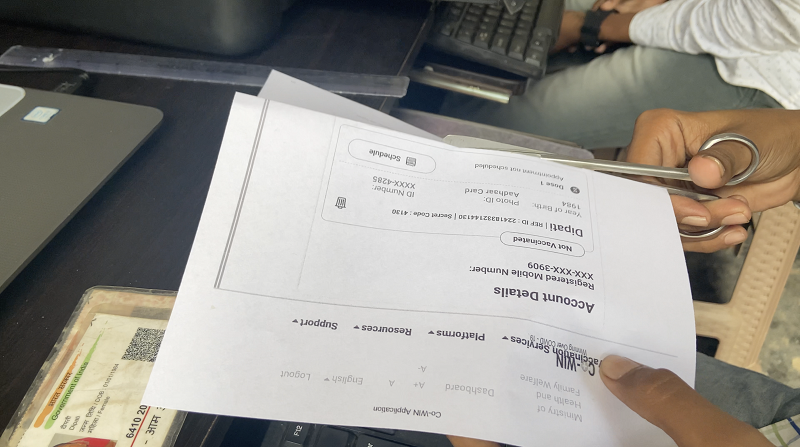
Abner Manzar is part of DEF’s Media and Communications team. A filmmaker and writer, he is travelling across DEF’s clusters to document the impact that DEF has had in those regions.











